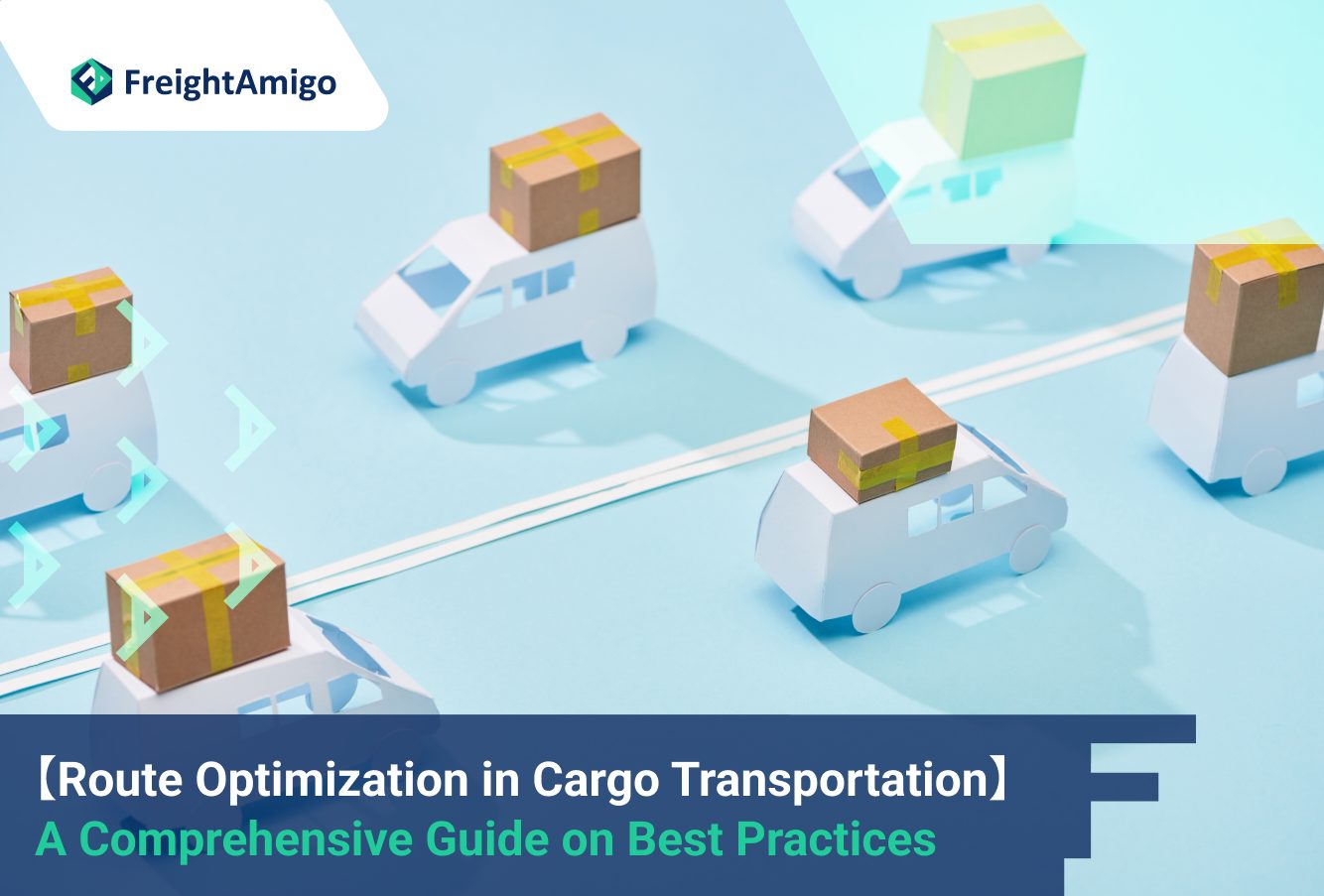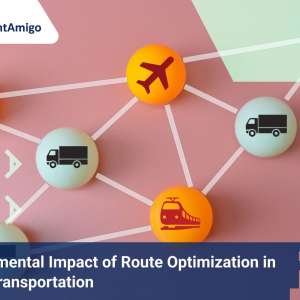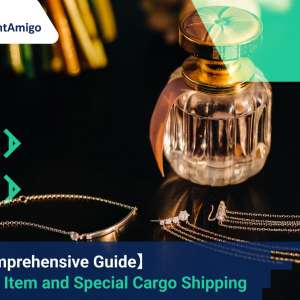The growth and advancement of technology has transformed the freight transportation industry. One of the critical areas that has seen significant development is freight transportation route optimization. This concept is changing the way companies plan and execute their delivery operations, ensuring efficiency and productivity.
Latest update on 28 February, 2024 by Aurora Park – Marketing Analyst at FreightAmigo
Want to compare the best Express, Air Freight, Sea Freight, Rail Freight & Trucking rates so as to have better control on cost?
Understanding Route Optimization in Cargo Transportation
Route optimization is the use of technology to plan and execute the most efficient routes for freight delivery. This process takes into account numerous factors to ensure cost effectiveness, on-time delivery, and improved customer satisfaction.
What is route optimization?
Simply put, route optimization is the process of determining the most cost-effective and efficient route for a set of deliveries. This process takes into account factors such as traffic patterns, road conditions, distance, and delivery windows to create the optimal route for each delivery.
The Importance of Route Optimization
Route optimization plays a critical role in reducing operational costs, improving service delivery, and increasing customer satisfaction. It minimizes unnecessary detours, reduces fuel consumption, and optimizes driver schedules. In addition, it ensures on-time deliveries to meet customer expectations.[/vc_raw_html]
The Significance of Route Optimization in Today’s World
In the age of digital transformation and customer-centric business models, route optimization in freight transportation is more important than ever. The rise of e-commerce giants like Amazon has set a new standard for delivery efficiency, prompting companies to up their game.
The Amazon Effect on Route Optimization
Known as the “Amazon Effect,” the e-commerce giant’s hyper-efficient approach to shipping and logistics has set a new standard for the industry. This has forced other shipping companies to invest in sophisticated route optimization solutions to stay competitive.
The Role of Route Optimization in Reducing Shipping Costs
Efficient route planning can significantly reduce operational costs. It minimizes unnecessary mileage, reduces fuel consumption, and optimizes driver schedules. It also reduces vehicle wear and tear, thereby lowering maintenance costs.[/vc_raw_html]
Route Optimization and JIT Transport
Just-in-time (JIT) manufacturing is a core element of lean manufacturing, where items arrive at a warehouse or shipping port exactly when they are needed. Route optimization is a critical component of JIT models to ensure efficient and timely deliveries.
The Importance of Route Optimization in JIT Models
For companies using JIT models, route optimization is critical. Any delay in deliveries can disrupt the entire supply chain, resulting in increased costs and dissatisfied customers. As a result, sophisticated route optimization solutions are essential to the successful implementation of JIT models.[/vc_raw_html]
Contactless Fleet Management and Route Optimization
Navigation is only one aspect of route optimization. Modern contactless fleet management solutions offer an integrated approach that takes into account various factors such as vehicle performance, digital document management, and transportation management.
Digital transformation and route optimization
Implementing a contactless fleet management system allows companies to move beyond manual, paper-based processes and embrace digital workflows. This not only improves operational efficiency, but also reduces costs and promotes environmental sustainability.
Data sharing and route optimization
Contactless fleet management solutions facilitate data collection, processing, and analysis, enabling companies to identify trends and improve shipping practices. On-board telematics can provide insight into vehicle performance, while AI models can help identify better routes.[/vc_raw_html]
Best Practices for Route Optimization in Cargo Transportation
Adopting best practices for route optimization can significantly improve the efficiency and productivity of freight transportation operations. These practices include using route optimization software, analyzing historical data and trends, and maintaining effective communication with key stakeholders.
Leverage route optimization software
Cutting-edge software solutions can quickly determine the best routes based on a variety of factors. Real-time traffic updates, geocoding tools, and GPS system integration can greatly improve the effectiveness of route planning.
Analyze historical information and trends
Analyzing historical data can help identify common delivery routes, patterns, and bottlenecks for proactive planning. Regular evaluation of performance metrics such as delivery times and customer feedback can help optimize and improve routes.[/vc_raw_html]
Conclusion
In the fast-paced world of freight transportation, efficient delivery operations are critical to success. Route optimization plays a critical role in ensuring cost-effective operations, maximizing resource utilization, and achieving customer satisfaction. By leveraging technology and adopting best practices, companies can optimize their delivery routes, reduce costs, improve customer satisfaction, and stay ahead of the competition.[/vc_raw_html]
For efficient cargo transportation, consult logistics experts like FreightAmigo. Visit the FreightAmigo website to explore our expertise in route optimization, ensuring timely and cost-effective delivery of your goods.
Read More:
Route Optimization | Enhancing Efficiency & Cost Savings | FreightAmigo
Warehouse Optimization | Streamlining Operations | FreightAmigo
Unleashing the Power of Supply Chain Data through Advanced Analytics
If you have any inquiries on logistics/supply chain, feel free to contact FreightAmigo now:
Chat with us online | Hotline: +852 28121686 | WhatsApp: +852 27467829









































